May 14, 2025 | 11:55 GMT +7
May 14, 2025 | 11:55 GMT +7
Hotline: 0913.378.918
May 14, 2025 | 11:55 GMT +7
Hotline: 0913.378.918
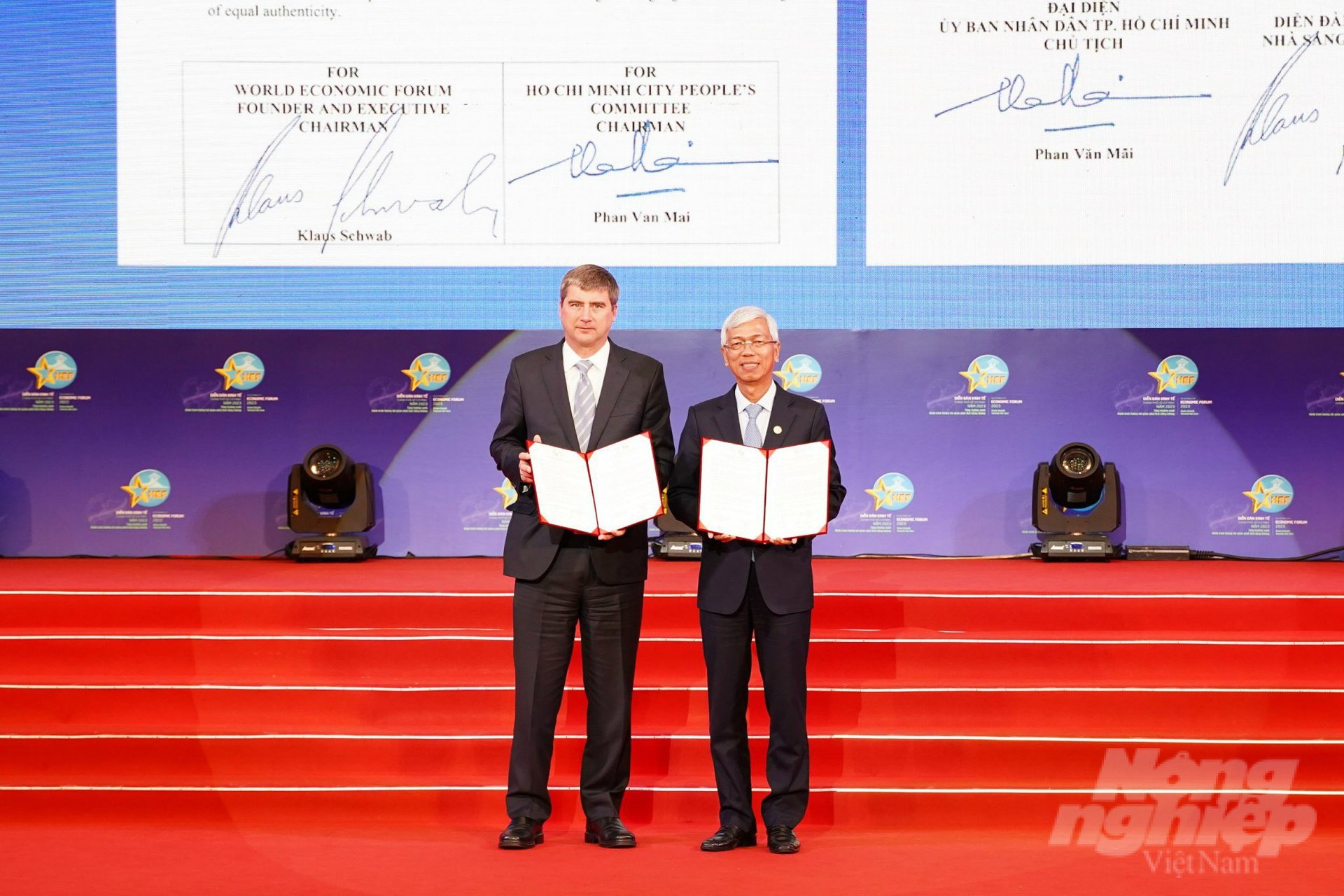
Vice Chairman of Ho Chi Minh City People's Committee Vo Van Hoan and Executive Director of the World Economic Forum (WEF) Jeremy Jurgens presented the Joint Statement between Ho Chi Minh City People's Committee and the World Economic Forum. Photo: Nguyen Thuy.
At the 4th Ho Chi Minh City Economic Forum (HEF 2023) with the theme "Green Growth - Journey towards reducing net emissions to zero", Vice Chairman of the Ho Chi Minh City People's Committee Vo Van Hoan on behalf of city authorities and Mr. Jeremy Jurgens, Executive Director of the World Economic Forum (WEF) presented the Joint Declaration signed by Chairman of the Ho Chi Minh City People's Committee Phan Van Mai and Professor Klaus Schwab, Founder and Chairman of WEF.
Ho Chi Minh City has held a meeting and discussion with the World Economic Forum (WEF) in order to elaborate on its leadership in a green economy, circular economy transformation, and the implementation of the Memorandum of Understanding between the Prime Minister and WEF. The two parties agreed to collaborate on the formation of the 4.0 Industrial Revolution Center in Ho Chi Minh City, with the Ho Chi Minh City Economic Forum as a member of the ecosystem.
"The center will bring together policy markets, business leaders, experts, and innovators to promote the application of 4.0 technologies, putting the human at the center to serve society," said Prof. Klaus Schwab, adding that WEF will participate in the support of net zero by coordinating closely with the implementation of conferences, public and private forums to promote influence and movement.
Today's society requires us to strike a balance between economic development and environmental protection for future generations.
"Only when economies and enterprises reduce carbon emissions will the global economy grow over time.
Vietnam has made significant progress in this area by investing in systems, food, and renewable energy innovation. It is one of the most striking features of Vietnam.
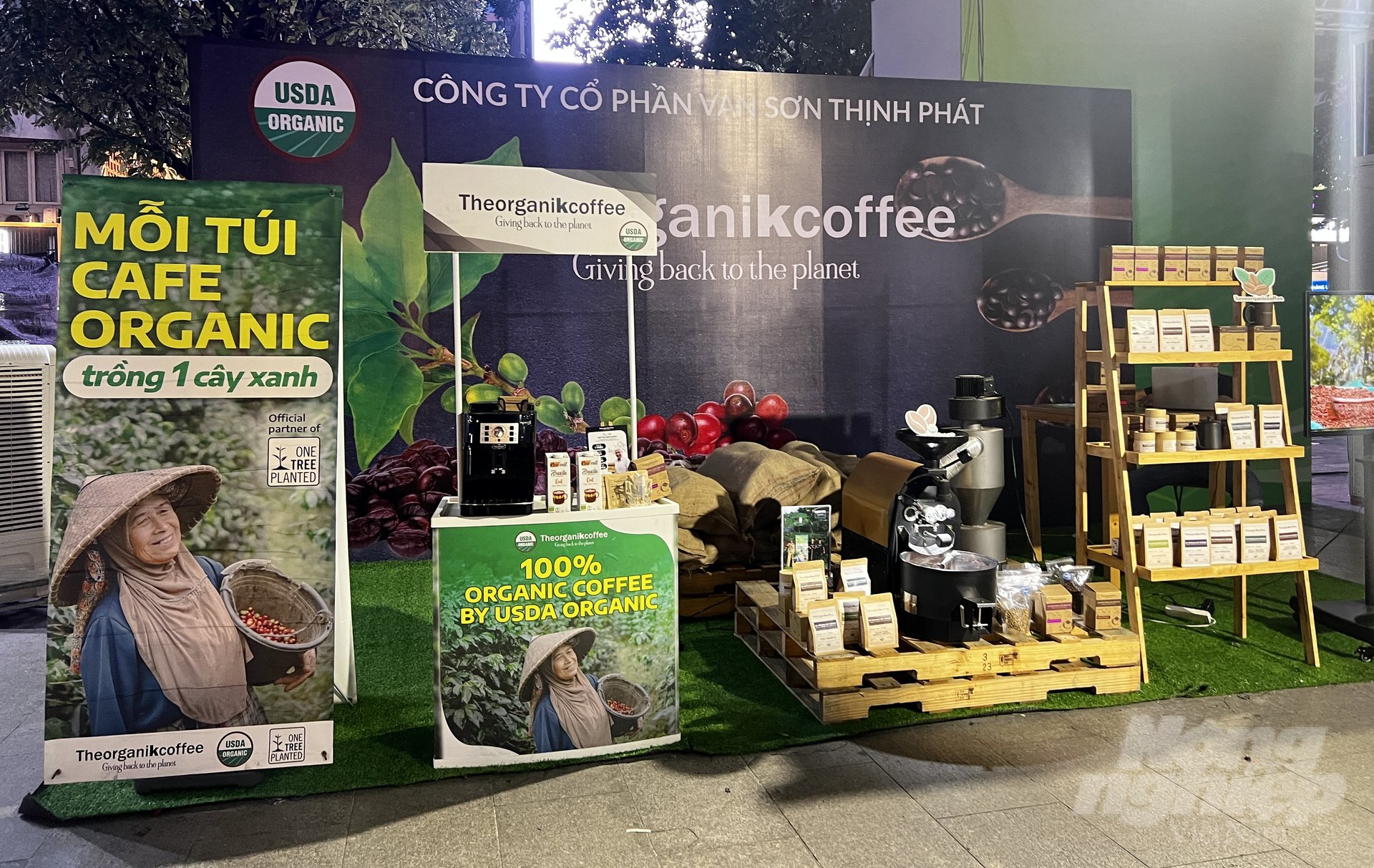
The booth displaying at the Green Growth Products and Services Exhibition space (Nguyen Hue Street, District 1) within the framework of HEF 2023. Photo: Nguyen Thuy.
Ho Chi Minh City is an exceptionally powerful development driver for the entire nation, establishing favorable conditions for business and innovation and utilizing the technologies of the Fourth Industrial Revolution. This will be essential to realizing the promise of fostering a net zero emissions economy.
Therefore, business leaders and policymakers must anticipate and implement emerging technologies. This requires an innovation strategy, as well as rules and regulations for this technology so that it can be used safely and responsibly, Professor Klaus Schwab emphasized, praising the Prime Minister and Ho Chi Minh City People's Committee for their commitment to eliminating greenhouse gas emissions by 2050.
Mr. Jeremy Jurgens, CEO and Director of the Center for the Fourth Industrial Revolution at the World Economic Forum (WEF), stated that the world is currently confronted with a number of challenges, including an increase in the frequency of conflicts and natural disasters.
Simultaneously, revolutionary achievements and technologies have altered conventional business practices. However, these technologies and accomplishments must be utilized responsibly to establish a sustainable society.
More than fifty percent of the world's population resides in cities, which account for seventy percent of the world's total emissions. These figures will grow in the future. Mr. Jeremy Jurgens emphasized that a remedy must be found to mitigate the resulting negative consequences.
Mr. Jeremy Jurgens outlined a number of WEF network initiatives. These are "Net Zero carbon cities" initiatives, in which the government and private sector collaborate for a sustainable future. It is also a "Precision Agriculture" initiative that assists farmers in continuing to farm in a sustainable manner, thereby contributing to the greening of the economy, with remarkable data on reduced emissions and pure water savings of 5 to 10 percent while productivity increases by 10 percent.
In addition, the "Advanced Manufacturing" initiative is extremely essential because the manufacturing sector contributes 30% of CO2 emissions.
"Our network will help countries learn from one another how to responsibly apply transformational technology to address economic challenges," the WEF representative said, affirming his willingness to collaborate with Ho Chi Minh City to expand the network, and to walk firmly with Ho Chi Minh City on the greening journey.
WEF currently operates 18 Industrial Revolution 4.0 Centers for governments, enterprises, and experts in technology, application, and governance. These institutions serve as hubs for cooperation, support, and the development of strategies and regulations to responsibly maximize the benefits of new technologies.
Ho Chi Minh City's Center for Industrial Revolution 4.0 will be a member of WEF's global network. This institute will propose solutions, counsel policy, and conduct research on the city's breakthrough priority areas in accordance with national and international trends. Thus, mobilizing resources and capital, and assisting the government and businesses in Ho Chi Minh City and Vietnam in general to implement new technologies in line with the Industrial Revolution 4.0 trend.
Translated by Linh Linh
![Multi-channel, multi-directional Vietnamese agricultural markets: [5] Safety is the key](https://t.ex-cdn.com/nongnghiepmoitruong.vn/608w/files/linhnhp/2025/05/13/trai-cay-viet-nam-170345_133-221148-0908330.jpg)
(VAN) The Middle Eastern market presents new opportunities for Vietnamese agricultural products, but safety in product quality, payment, and partnership relations is a fundamental principle.
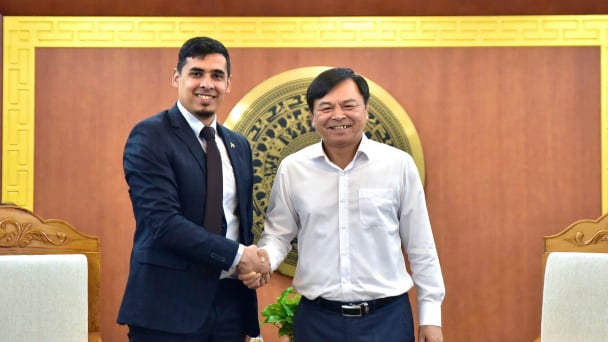
(VAN) Vietnam's participation in the AGROALBA project helps open up broader investment opportunities for enterprises to access markets in the fields of agriculture.
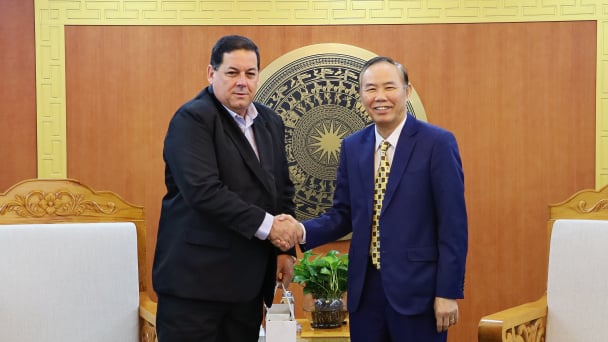
(VAN) On May 13, Deputy Minister of Agriculture and Environment Phung Duc Tien held a meeting with Cuban Deputy Minister of the Food Industry Javier Francisco Agular Rodriguez.
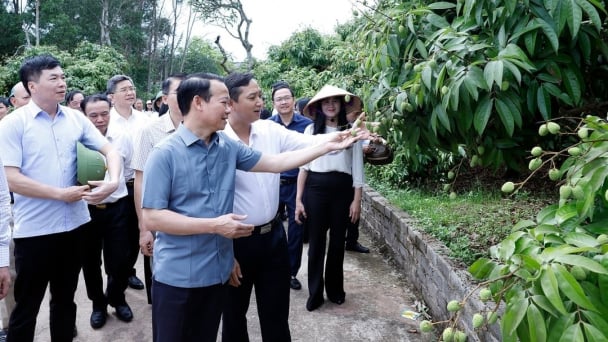
(VAN) Agriculture and environment sector experienced a 3.74% increase in growth during the first four months of 2025, with exports surpassing 21 billion USD. This growth was sustained by effective reforms and a trade surplus.

(VAN) Taiwan offers a promising market for Vietnamese turmeric; however, it enforces stringent standards, particularly concerning residual additives, colourants, and substances with potential carcinogenic effects.
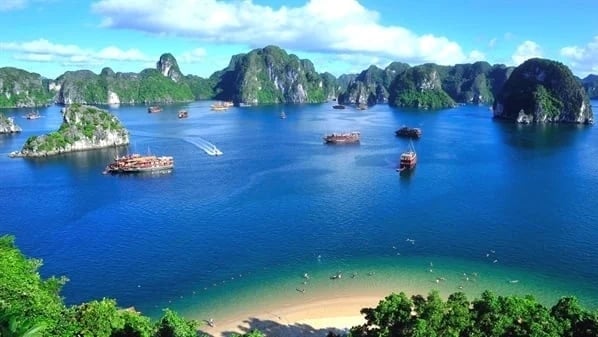
(VAN) Through activities at Vietnam Sea and Island Week 2025, solutions will be developed to fully harness the potential and advantages of Vietnam's marine economy.
![Multi-channel, multi-directional Vietnamese agricultural markets: [4] EVFTA and the 0% tax advantage](https://t.ex-cdn.com/nongnghiepmoitruong.vn/608w/files/linhnhp/2025/05/12/day-chuyen-che-bien-tom-tai-1-nha-may-cua-sao-ta-205536_359-1044193.jpg)
(VAN) The near-complete elimination of import tariffs on Vietnamese goods makes the EVFTA the highest commitment the EU has ever made to a partner in its signed trade agreements.